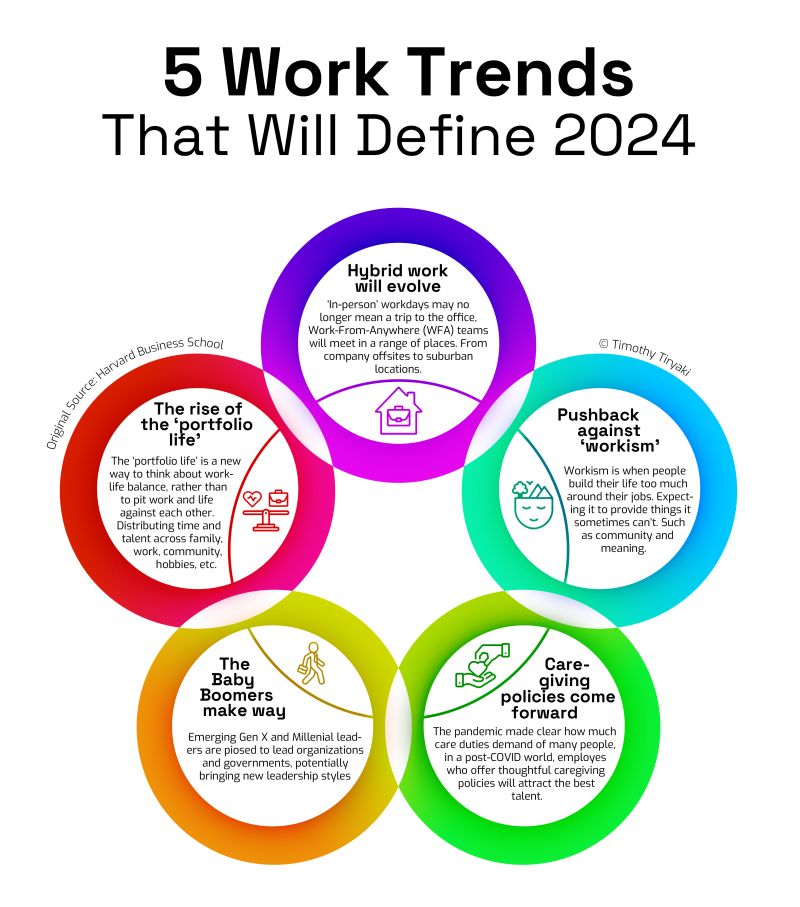Currently Empty: $0

As we have settled into the new year, it’s essential to recognize the evolving trends shaping our organizational cultures, and therefore, leaders’ strategy on how to manage these developments.
According to Harvard Business School, there are five key trends that will define work as we know it in 2024. So employee, managers, entrepreneurs and leaders, keep a watch out for these:
Hybrid Work Evolution: The concept of ‘in-person’ workdays is undergoing a significant transformation. With the rise of Work-From-Anywhere (WFA) teams, we’re witnessing a shift towards flexibility and adaptability. Whether it’s collaborating in company offsites or embracing remote work from suburban hubs, leaders need to ensure a culture of trust.
Pushback Against ‘Workism’: We’re acknowledging that work shouldn’t be expected to provide everything, including community and meaning, fostering a healthier work-life balance. Leaders should strategize on implementing policies that prioritize balance and wellness.
Caregiving Policies Forward: The pandemic underscored the importance of caregiving duties, prompting a closer look at supportive policies. In a post-COVID world, companies offering thoughtful caregiving policies will not only support their employees but also attract top talent seeking a compassionate workplace culture.
Generational Shifts: As Baby Boomers make way, emerging Gen X and Millennial leaders are stepping into prominent roles. This generational transition brings forth new perspectives and innovative leadership styles, paving the way for organizational evolution. Cultivating a culture that values this flexibility will be crucial.
Rise of the ‘Portfolio Life’: Instead of viewing work and life as opposing forces, we’re embracing a holistic approach. By distributing our time and talents across family, work, community engagement, hobbies, and more, we’re crafting fulfilling and multidimensional lives. Organizations that promote this lifestyle will be the most successful this year.
In essence, organizational strategy and culture are intricately linked in navigating the evolving landscape of work. By aligning strategic goals with cultural values that prioritize flexibility, well-being, inclusivity, and continuous learning, organizations can thrive in an ever-changing environment while nurturing a resilient and engaged workforce.
Source: GWFM Research & Study








